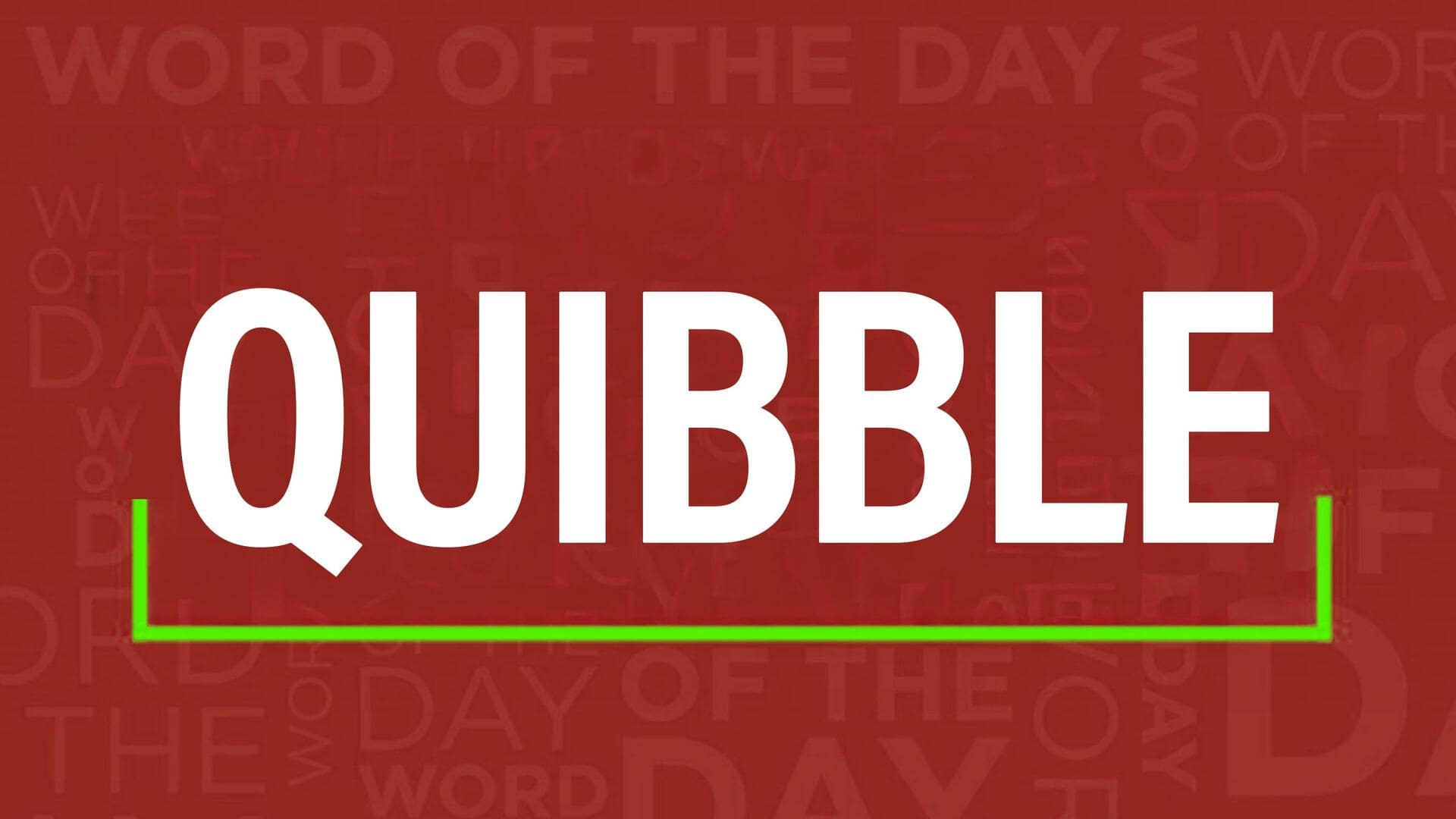Word of the Day: Quibble
What's the story
The word "quibble" is a verb and a noun that refers to nitpicking, making petty objections, or arguing over tiny, insignificant details.
When someone "quibbles," they're the person who debates whether it's grey or gray instead of focusing on the actual issue.
It's the word for those unnecessary, eye-roll-worthy arguments that make mountains out of molehills.
Origin
Origin of the word
"Quibble" comes from the Latin word quibus, a legal term used in nitpicky arguments, which later evolved into the 17th-century English term quib, meaning a small, clever remark.
By the 1600s, "quibble" became the go-to word for arguing over trivial details, often in a way that's frustratingly pointless.
Synonyms
Synonyms for 'quibble'
Other words in the "quibble" club include nitpick, fuss, bicker, and split hairs.
For extra sass, you might also use squabble, cavil, carp, or pettifog—perfect for describing debates over completely unnecessary nonsense.
Usage
Sentence usage
Let's throw "quibble" into action:
"The debate started as a serious discussion but quickly turned into a pointless 'quibble' over the correct pronunciation of 'gif.'"
"He had a habit of 'quibbling' over the tiniest details, turning even simple plans into exhausting negotiations."
Extra detail
Why use the word
"Quibble" isn't just about arguing—it's about arguing over nothing.
It's the perfect word for those frustratingly small disputes that somehow manage to take up way too much time.
Use "quibble" when you want to capture the unnecessary back-and-forth of trivial debates, petty objections, and people who just won't let it go.
